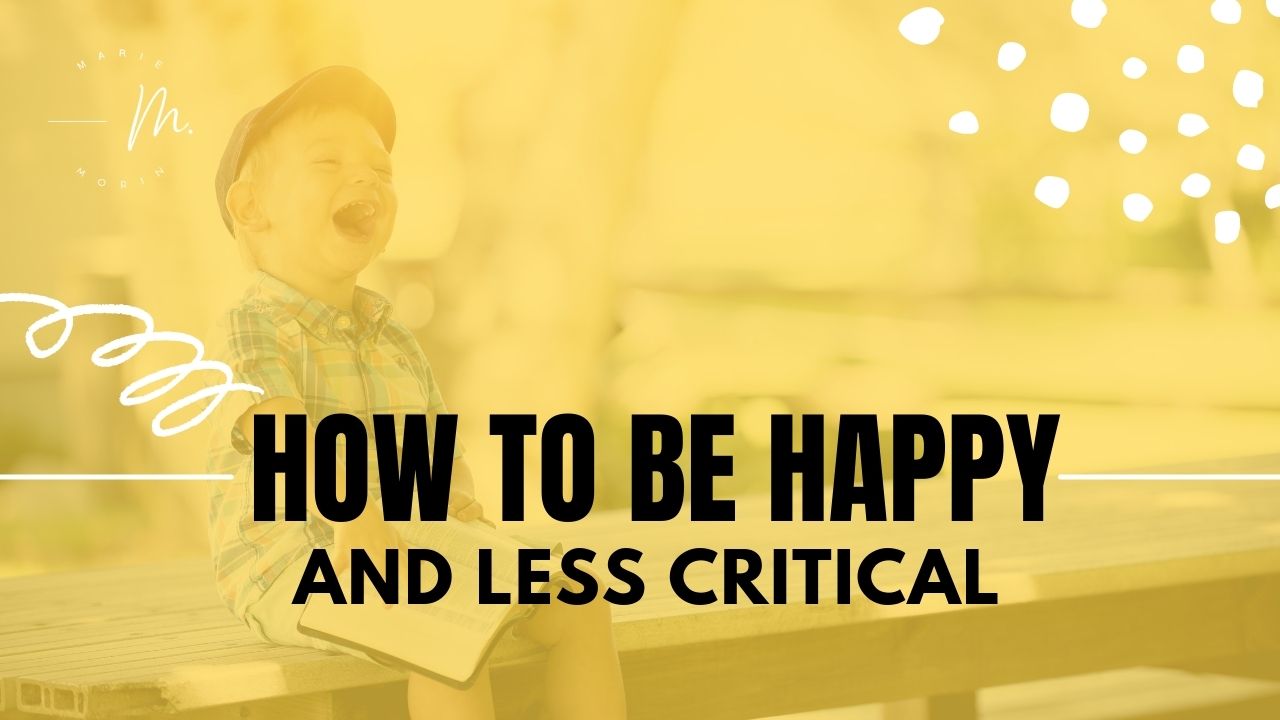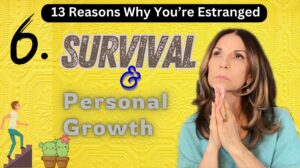How would you like to be happier and less critical?
The happiest people look at what they have rather than what they do not have. If you have very high expectations of yourself, you focus more on what needs to be better. In terms of overall happiness, or life satisfaction, looking through the lens of a perfectionist makes it hard to see the glass full. For example, if you have a penchant for exhaustive self-criticism, you see yourself in terms of what is missing, lacking, wrong, or not good enough. This article will discuss three tips to increase your life satisfaction. How to be happy and less critical.
Tip #1: Stop Criticizing Yourself
Self-critical behaviors and self-talk are common among individuals with fixed mindsets and high standards. The trouble with self-criticism is that it does more harm than good. Sweeping generalizations about your performance may be a habit that needs a fresh perspective. For example, if you have completed a project you are displeased with and find yourself doing the self-critical routine, try disputing your thoughts.
Disputing thoughts is a cognitive behavioral therapy technique that considers what you are thinking. Examining the ideas and comparing them with their accuracy will alert you to the unproductive nature of self-critical self-talk.
The next time you criticize yourself, try disputing your thoughts.
Thoughts: “I did a terrible job” or “I will not get this right.”
Dispute Technique: Compare your thoughts to what is accurate.
Is it true that you did a terrible job? Probably not; someone with high standards makes sure they do the best they can. Acknowledge the accuracy and reality that you did your best. You have done exceptional work before despite your habit of self-criticism.
Tip #2 Be Grateful
Gratitude is a popular topic with good reason; it works!! In his book Gratitude Works, Robert Emmons outlines the many studies that point to the power of gratitude. People who practice gratitude regularly have a better quality of life.
Gratitude is about considering and then feeling the benefit of a gift someone gave you that was out of kindness. When you stop and feel how wonderful it was that they thought of you and did this kindness for you, notable neurological changes in your brain occur. Scientists believe that the feel-good neurochemical endorphins are released. Want to be happier, then spend time in a variety of gratitude practices.
Research tells us that to benefit from gratitude; you need to switch up the exercises. When we stick with the same routine, boredom hits. For that reason, try the 21-Day Gratitude Journal Challenge or find the practices that you like the most and do them on a rotating basis.
Gratitude Exercises from Robert Emmons, book, Gratitude Works:
The Three Blessing: Journal and recall what three things that went well for you.
How to do the Three Blessings Exercise and Five Easy Steps to Be More Grateful
To Whom and For What : An exercise of recalling what one person did for you, for what specific reason, and feel the emotion of your appreciation.
How to Practice the To Whom and For What Gratitude Journaling Exercise and Three Keys to Being More Grateful
The Gifted Self: An exercise of focusing on benefits you personally have received.
How to Practice Gratitude- The Gifted Self Exercise
Look to the Future: An exercise in finding an event, experience, or relationship that may come to an end within the next few months. Given the limited time, take account of your appreciation and gratitude.
How to Practice Gratitude Journaling and Look to the Future Exercise
Absence of Blessing: An exercise in taking something away and being cognizant of the benefits you may have taken for granted.
Gratitude Journaling Can Change Your Life- The Absence of Blessings Exercise
Gratitude Letter: An exercise in writing a 250 word letter to someone expressing why you are grateful and how that person impacted you positively.
How to Write a Gratitude Letter
Bad to Good : An exercise in remembering bad things and then focusing on what you have learned as a result of that experience. What good came of the bad event.
How To Practice Gratitude Journal – From Bad to Good Exercise
People who commit to a gratitude journaling practice gain some impressive benefits.
- They know their purpose.
- They are more generous.
- They go out of their way to help others.
- They linger and appreciate the ordinary pleasures they gain from everyday things.
- They have more energy.
- They achieve their personal goals.
- They are better able to deal with daily stress.
- They are more likely to heal from trauma and live the life they want.
- They have more secure and loving relationships.
- They are more resilient.
- They have secure self-worth.
Does having more resilience, secure self-worth, achieving personal goals, having certain relationships, and knowing your purpose sound like a recipe for happiness?
Tip #3 Be Mindful and Compassionate
Mindfulness research indicates that the practice of slowing down, focusing, and concentrating has extraordinary benefits. How many times have you found yourself arriving at a destination in your car, and you have no recollection of how you got there? Have you found yourself so busy during the day that you hardly had a moment to check in with yourself and take a breath? We lead hectic lives.
Mindfulness is about making our lives rich and alleviating the stress the alternative creates. If we are not mindful, we are on autopilot. Autopilot means we are not focusing or paying attention to what we are thinking and how we are feeling. Is it any wonder that there is an epidemic of depression and anxiety when our focus is on the external train of doing and more doing?
Mindfulness and compassion go hand in hand. Try a breathing practice where you follow your breath for just five minutes. Inhale to the count of four, hold for seven and exhale for eight. Try and keep your focus on the inhale and the exhale. If you lose focus, go back to the breath and remind yourself it is ok. It is very typical to lose focus during the practice of mindfulness. Compassion is the act of kindness you give to others; It is equally important to give it to yourself. Next time you are feeling off the mark, try a little mindfulness and compassion.
Self-Criticism Robs Your Happiness
Self-criticism may help evaluate relational behaviors, internal motives, and perhaps past struggles, but in small doses. However, self-criticism may limit one’s ability to grow and excel when predicting and believing that one is doomed to never measuring up. How does one get from this thinking pattern to one in which there is possibility and hope? Daily practices that offer opportunities for confidence to be nurtured and cultivated is an excellent start.
Start your day with compassion. Before you begin, do your spiritual exercise, and remind yourself you are loved and enough. Don’t worry if you don’t believe it at first. Teach your thinking pattern to shift by giving accurate information. You are loved and are enough.
Secondly, begin the habit of gratitude. Don’t overthink it. Just do a quick ten minutes a day of some of the practices referenced in this article. Research confirms that this practice is more potent than any other practice.
Thirdly, commit to shift from self-criticism by disputing your thoughts. Refuse to indulge in the nasty practice of putting yourself on the chopping block. Life is short. There is too much love to give and receive. Let’s get to the business of loving ourselves.
In this article, you have learned three tips on How to Be Happy and Be Less Critical.





